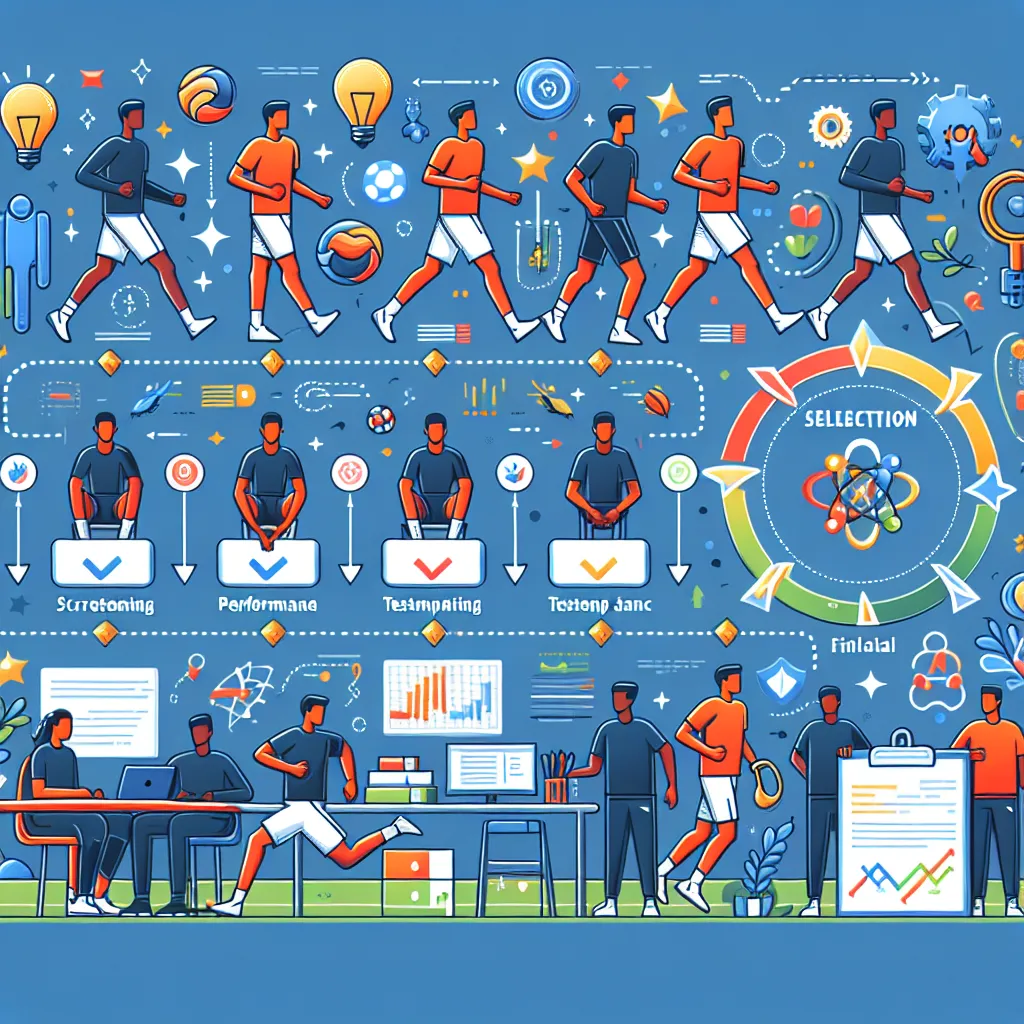Talent identification is a crucial concept in sports, education, and business. For IELTS test-takers, understanding and using this term effectively can significantly boost your score. Let’s dive into the definition, usage, and practice of this important phrase.
Definition and Pronunciation
Talent identification (noun phrase)
/ˈtælənt aɪˌdentɪfɪˈkeɪʃən/
Definition: The process of recognizing and assessing individuals who possess exceptional abilities or potential in a specific field, such as sports, arts, or academics.

Context and Usage
Examples in Context
-
“The national swimming federation has implemented a new talent identification program to discover young athletes with Olympic potential.”
Analysis: This sentence demonstrates the use of the term in a sports context, highlighting its role in finding future champions.
-
“Universities are adopting advanced talent identification techniques to recruit students with exceptional academic abilities.”
Analysis: Here, the phrase is applied to an educational setting, showing its relevance beyond sports.
-
“The tech company’s talent identification strategy involves analyzing coding competition results to find promising software developers.”
Analysis: This example illustrates how businesses use talent identification in recruitment processes.
-
“Effective talent identification in music requires not only recognizing technical skills but also assessing creativity and passion.”
Analysis: This sentence emphasizes the multifaceted nature of talent identification in the arts.
-
“The success of any talent identification program depends on its ability to predict long-term potential rather than just current performance.”
Analysis: This example highlights a key principle in talent identification across various fields.
Common Contexts
- Sports development programs
- Educational institutions’ admissions processes
- Corporate recruitment strategies
- Arts and entertainment industry scouting
- Scientific research team formation
Frequency in IELTS
“Talent identification” is moderately common in IELTS, particularly in:
- Reading passages about sports, education, or business management
- Writing Task 2 essays on topics related to education or career development
- Speaking Part 3 discussions about nurturing talent or career success
Vocabulary Analysis
Word Structure
- Talent (noun): A natural aptitude or skill
- Identification (noun): The action or process of identifying someone or something
Synonyms and Antonyms
Synonyms:
- Talent spotting /ˈtælənt ˌspɒtɪŋ/ (noun): The activity of looking for people with special abilities
- Ability recognition /əˈbɪləti ˌrekəɡˈnɪʃən/ (noun phrase): The process of identifying individuals with particular skills
- Potential assessment /pəˈtenʃəl əˈsesmənt/ (noun phrase): Evaluation of an individual’s future capabilities
Antonyms:
- Talent overlooking /ˈtælənt ˌəʊvəˈlʊkɪŋ/ (noun): The act of failing to notice or identify talented individuals
- Skill misidentification /skɪl ˌmɪsaɪˌdentɪfɪˈkeɪʃən/ (noun): Incorrectly assessing or recognizing abilities
Memory Techniques
Mind Map
Create a mind map with “Talent Identification” at the center, branching out to related concepts:
- Methods: Interviews, Tests, Observations
- Fields: Sports, Arts, Academics, Business
- Traits: Skills, Potential, Creativity, Leadership
- Benefits: Performance Improvement, Competitive Advantage, Personal Growth
Story Creation
Imagine a story about a talent scout named Tim who travels the world (Talent Identification). He uses special glasses (Identification) to spot glowing auras (Talent) around people with exceptional abilities. This visual narrative can help reinforce the meaning and importance of talent identification.
Practice Exercises
-
Write a paragraph about the importance of talent identification in your country’s sports development program.
-
Create sentences using both “talent identification” and its synonyms in different contexts.
-
Discuss the potential drawbacks of relying too heavily on talent identification programs in education or business.
-
Compare and contrast talent identification methods used in sports versus those used in academic settings.
-
Describe how technology might enhance talent identification processes in the future.
Conclusion
Mastering the concept and usage of “talent identification” can significantly enhance your IELTS performance, especially in tasks related to education, sports, and career development. Remember to practice using this term in various contexts and to explore its related vocabulary to build a more comprehensive understanding.
We encourage you to share your experiences with using “talent identification” in your IELTS practice or to ask any questions you may have about this term in the comments section below. Keep practicing and expanding your vocabulary to achieve your desired IELTS score!